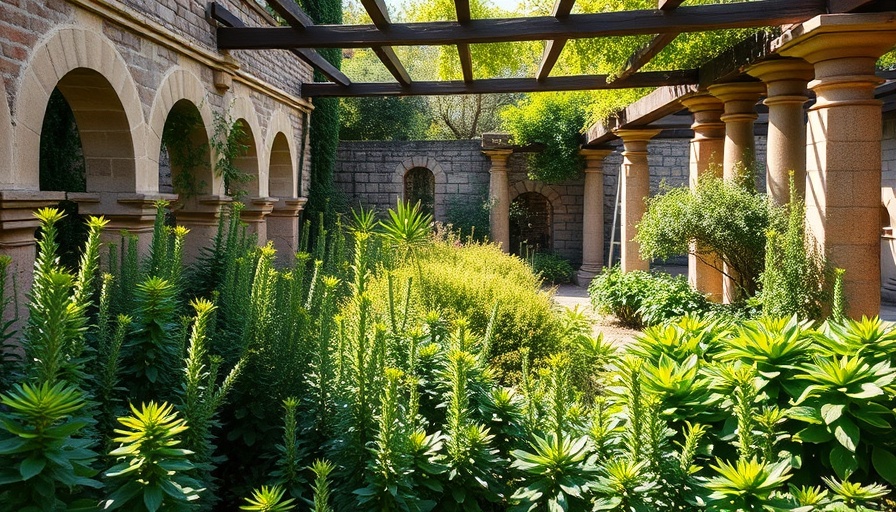
The Comeback of the Ancient Roman 'Perfume Garden'
In a delightful twist of fate, an ancient Roman 'perfume garden' that lay dormant for nearly 1,900 years has been revived, much to the excitement of archaeologists and history enthusiasts alike. Originally flourishing before the catastrophic eruption of Mount Vesuvius, this garden featured a stunning array of roses, violets, and various fruit trees, showcasing the impressive horticultural practices of the Romans.
A Glimpse Into History: What the Garden Revealed
Discovered at the archaeological site of Pompeii, the garden stands as a testament to the Roman's affinity for beauty and nature. The meticulous layout of the garden, featuring a design that promoted biodiversity, offers insights into ancient gardening techniques and agricultural practices. According to researchers, the revival of the garden not only brings to light the past but also acts as a living laboratory, allowing scientists to study the plant varieties that thrived in this remarkable environment.
Importance of Aromas and Plant Life in Ancient Rome
For the Romans, scents held special significance, often used for healing, beauty treatments, and religious ceremonies. Exploring the perfumes created from the flowers in this garden takes us on a fragrant journey into their lives. Violets were not only favorites in bouquets but were also used in perfumes and medicines, showcasing their importance in daily Roman life. The revived garden aims to produce these scents once again, allowing modern visitors to experience the aromas that enchanted ancient Romans.
Current Excitement and Future Predictions for the Site
With the completion of the garden's preservation, various cultural events are being planned, allowing visitors to engage with history in unique ways. Experts predict that as this garden continues to bloom, it will play a crucial role in Pompeii’s tourism and educational programs, offering workshops and guidance on ancient gardening techniques.
Social Connection: Why Reviving this Garden Matters
This revival is not only about flowers but also about connecting people with their roots and history. For those of us in Louisiana, where gardens often reflect both personal and community stories, this initiative carries a familiar ring. It invigorates a sense of shared history that can be appreciated across continents and centuries. Gardeners and nature lovers will find a deep connection to the ancient practices that mirror our own plant care traditions.
What Can We Learn From the Ancient Romans?
The return of this perfume garden challenges us to reflect on our environmental practices. By studying how the Romans cultivated their gardens, we can glean insights into sustainable gardening and the relationship we share with our land and plants. As Louisiana residents, we face unique challenges with our rich ecosystems, and embracing knowledge from ancient cultures can guide us in making informed choices to nurture our environment.
Emotional Resonance: How This Affects Us Today
Imagine the joy of strolling through this ancient garden, immersed in the fragrances that once filled Pompeii, connecting with history in a tangible way. It sparks a feeling of nostalgia, reminding us of the beauty that can emerge from tragedy—a notion that resonates deeply within the hearts of many, especially those who cherish the stories of ancestors who toiled and thrived in their gardens.
In conclusion, the revival of the ancient Roman perfume garden speaks volumes about resilience, beauty, and the human connection to nature. It's more than just a historical site; it’s an inspiration to us all. As we embrace the lessons and beauty of the past, let’s take a moment to appreciate our own gardens, big or small, and the stories they hold.
Ready to explore new landscapes? Whether in your own backyard or across the globe, keep nurturing those roots! Remember, every garden tells a story—you just need to unlock it!
 Add Row
Add Row  Add
Add 



Write A Comment